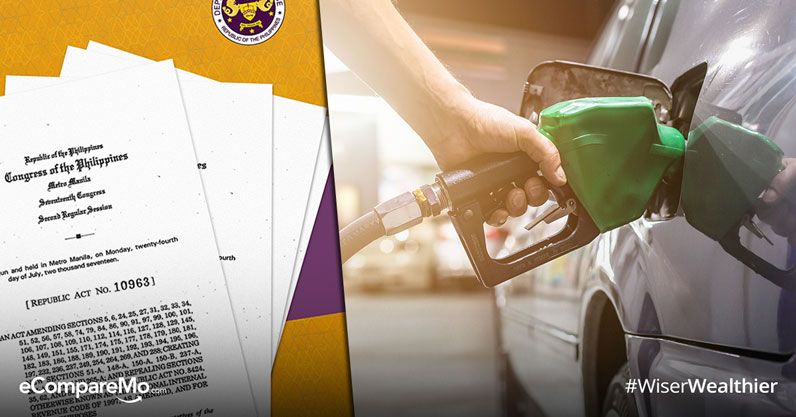Will Fuel Excise Taxes Be Suspended Amid Price Hikes? Not Really, Says The DOF
2 min read
The government is prepared to suspend the fuel excise tax if the global price of oil hits $80 a barrel. However, according the Department of Finance, a total suspension is not possible.
On Tuesday this week, Presidential Spokesman Harry Roque said during a press briefing in Malacanang that the government could suspend the fuel excise tax if world oil prices hit $80.
“Excise taxes will be suspended if they reach a certain amount if I’m not mistaken $80. So we’re ready kung talagang umabot ng ganyan kataas na suspende ang koleksyon ng excise taxes pagdating sa produkto ng langis [to suspend the collection of excise on fuel products if it reaches that level],†said Roque.
The supposed provision that would allow for this was Revenue Regulation No. 2-2018, which states: “For the period covering 2018 to 2020, the scheduled increase in the excise tax on fuel as imposed in this section shall be suspended when the average Dubai crude oil price based on Mean of Platts Singapore (MOPS) for three months prior to the scheduled increase of the month reaches or exceeds $80 per barrel.â€
If the scheduled increase is indeed suspended, it will not mean that the excise tax will be removed all together.
According to the DOF, the suspension “shall not result in any reduction of the excise tax being imposed at the time of the suspension.”
The Tax Reform for Acceleration and Inclusion (TRAIN) Act, implemented at the start of this year, decrees an increase in the excise tax on diesel and bunker fuel of P2.50 per liter. This is set to go up to P4.50 in 2019 and P6 by 2020.
With regards to gasoline, the excise tax increased from P4.35 to P7 this year. It is further scheduled in increase to P9 in 2019, then P10 in 2020.
A recent report from ABS-CBN News cited motorists who are choosing to leave their cars at home due to the rise in the prices of gasoline. Most of those interviewed cited the recently implemented TRAIN law as the reason they believed that gas prices, and subsequently their expenses were up.
For its part, the Bureau of Internal Revenue was said to have noticed a downtrend in taxable fuel. And executives of the Petron Corporation have said that sales volumes have been tracking flat, which they also blamed on higher prices.
The two factors to higher pump prices are elevated world oil prices and higher fuel excise taxes.
Metrobank research analyst Pauline May Ann E. Revillas told the Philippine Daily Inquirer that several world events have worried the oil markets and pushed oil prices to the highs we are seeing now.
These events include the United States backing out of the Iran nuclear deal and reinstating sanctions and the collapse of the Venezuelan government leading to a decrease in the country’s oil production.
“The potential supply shortfall from Iran and Venezuela could pose a major challenge for producers to fend off sharp price increases and fill the gap,” she said.
Iran’s oil production is seen as dropping to 500,000 barrels-per-day from the 2.2 million it is currently exporting. The problems in Venezuela’s oil production are said to have taken out about 700,000 barrels-per-day from the global market.
